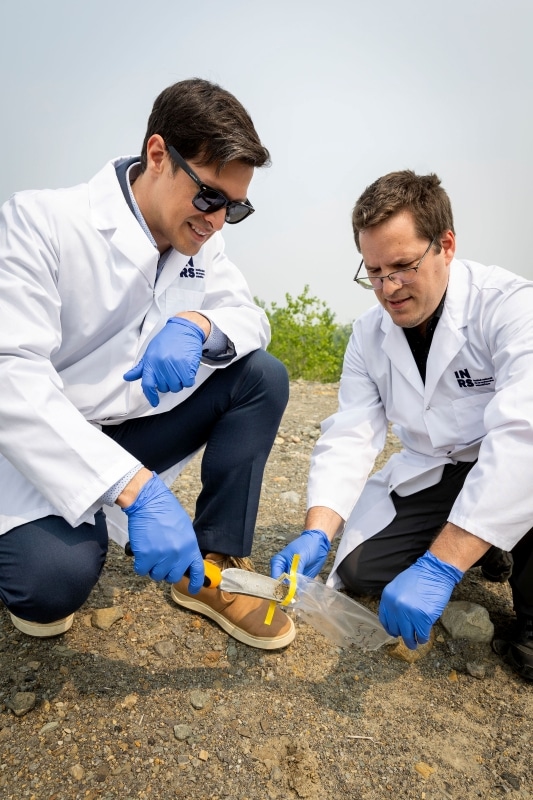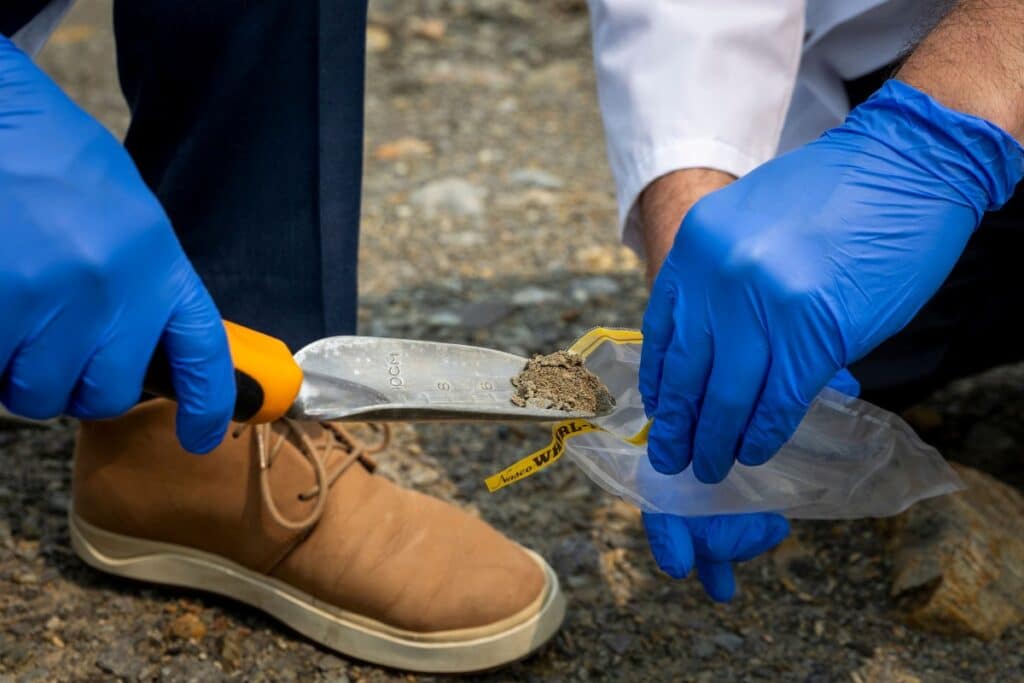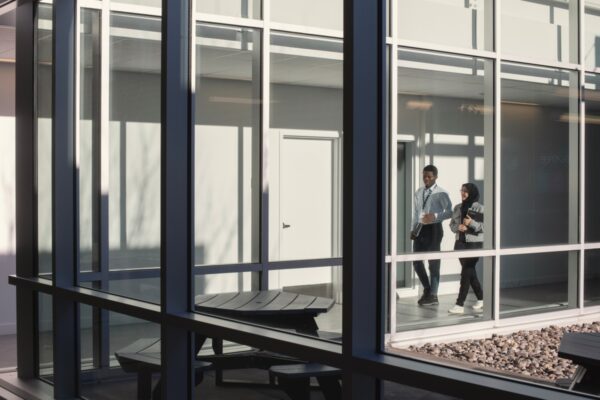- Research
A groundbreaking research project at Carré Laval led by Professor Philippe Constant.

Photo: From left to right: Annick Girard, Deputy Scientific Director of INRS; Élizabeth Muir Lepage, Head of the Carré Laval program; Stéphane Boyer, Mayor of Laval; Philippe Constant, Professor at INRS and Principal Investigator of the Urban Microbiome Network project; Diane Bouchard, Director of Partnerships at Génome Québec; and David Chatenet, Director of the Centre for Research and Innovation in Urban Health (CRIU) at the Laval University Health Network. Philippe Constant, Professor at INRS and Principal Investigator of the Urban Microbiome Network project, Ms. Diane Bouchard, Director of Partnerships at Génome Québec, and Mr. David Chatenet, Director of the Armand-Frappier Health Biotechnology Center at INRS. Photo credit: Frédérique Ménard-Aubin
Green spaces play a crucial role as reservoirs of biodiversity, yet their precise impact on overall health remains poorly understood.
A project led by the Institut national de la recherche scientifique (INRS), in partnership with Ville de Laval, Génome Québec, and the Fonds de recherche du Québec – Nature et technologies (FRQ), aims to bridge this gap by studying the urban microbiome through environmental DNA (eDNA). The goal is to guide the design of optimized green spaces that maximize benefits for human, animal, and environmental health.
This project, titled “The Urban Microbiome Network: When the Urban Microbiome Guides Decisions and Brings Communities Together,” is an innovative scientific initiative being conducted as part of the development of Carré Laval, a future mixed-use eco-district in downtown Laval.
The urban microbiome refers to the collection of microorganisms and their genetic material found in urban environments. This includes bacteria, fungi, viruses, etc., present in the air, soil, water, buildings, public transit vehicles, and even on surfaces we touch daily. Each city has a unique microbial signature influenced by its climate, geography, and human activities.
A unique study with local and global impact
The project, led by Professor Philippe Constant—holder of the INRS–Ville de Laval research chair in microbiome engineering for environmental and agri-food applications—stands out for its innovative approach combining public collaboration with scientific rigour. The study will lay the groundwork for monitoring the impact of green infrastructure on the health of people, animals, and the environment.
“The Urban Microbiome Network is an innovative project by the INRS–Ville de Laval research chair that links urban planning with microbial diversity regeneration. With the help of local residents, a unique database will be created that reveals the impact of the urban microbiome on overall health and expected benefits within the Carré Laval development.”
Philippe Constant, Professor at INRS, Microbiology Expert
Over a two-year period from July 1, 2025, to June 30, 2027, a large-scale sampling campaign will be conducted in several areas of Laval, including Carré Laval. Around one hundred Laval residents will actively participate in data collection by taking samples from their indoor and outdoor environments to better understand the microorganisms living there.


The resulting microbiome profile will help identify urban designs that promote microbial biodiversity and contribute the most to overall health. In addition to guiding future urban planning decisions in Laval, the knowledge gained will be transferable to other towns and cities, offering concrete solutions for developing resilient, biodiversity-friendly urban environments.
A sustained strategic collaboration
The project, selected through a Génome Québec competition, is being led by Professor Constant in collaboration with Professor Geneviève Lajoie and Professor Étienne Yergeau from INRS, as well as Professor Caroline Duchaine and Professor Paul George from Université Laval.
“This project demonstrates the full potential of genomics applied to current urban challenges. Integrating environmental DNA into the planning of our living environments paves the way for more informed, science-based decisions. By funding this project together with the FRQ, Génome Québec is helping to embed genomics expertise into actual urban development initiatives.”
Stéphanie Lord-Fontaine, Vice President of Scientific Affairs – Génome Québec
Since its creation in 2023, the INRS–Ville de Laval research chair in microbiome engineering for environmental and agri-food applications has secured over $1.7 million in research grants. The resulting projects engage academic and private partners from various regions across Québec.
A living lab for urban innovation
Carré Laval, the future mixed-use eco-district dedicated to innovation and ecological and social transition, will serve as a key testing ground for the project. It will allow direct application of urban microbiome research findings to the design of green infrastructure. Through this initiative, Laval will become a veritable living lab where science, nature, and sustainable urban design converge to enhance quality of life.
“With the Urban Microbiome Network project, Laval is reaffirming its commitment to innovation and sustainable development. This initiative perfectly illustrates our vision of a city where science and nature work in harmony to improve quality of life. Carré Laval will become a flagship site for our community, and we are proud to leverage this unique district to carry out this important study that will shape urban development for future generations.”
Stéphane Boyer, Mayor of Laval
Read the press release from Ville de Laval
Residents of Laval interested in this landmark study can subscribe to the consultation page for Carré Laval on the Repensons Laval platform.



